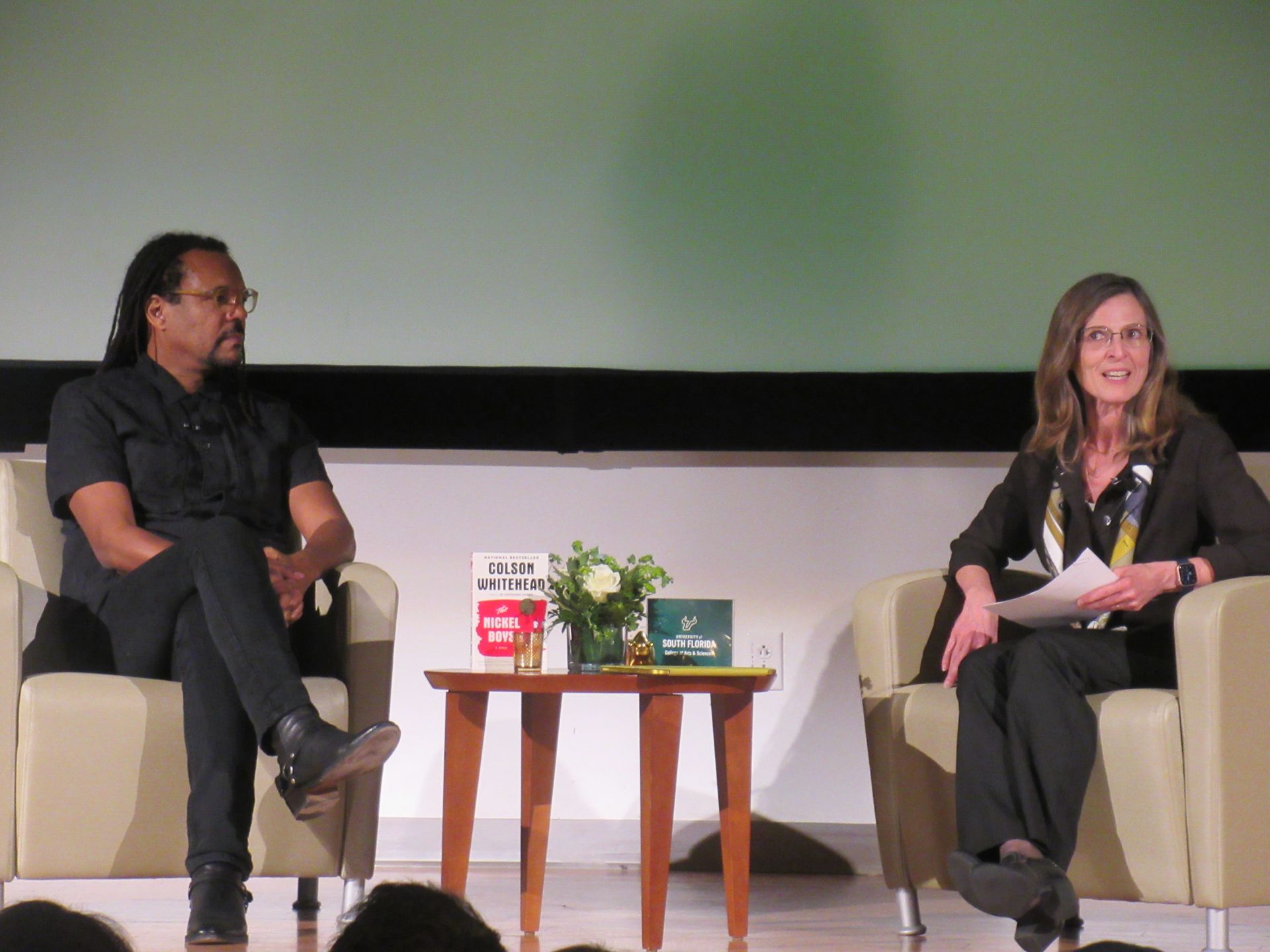An Evening with Colson Whitehead
The Real-life Inspiration Behind his Pulitzer Prize Winning Novel
by Hana Abdel Magid

American novelist Colson Whitehead is a trailblazer in modern literary canon, and his talents are widely recognized from receiving the National Book Award in Fiction to being one of only four two-time Pulitzer Prize winning authors. His works are celebrated for their thought-provoking social commentary and topical subjects. As part of the University of South Florida’s Frontier Forum series, Whitehead discusses his latest Pulitzer, Nickelboys, followed by a Q&A session moderated by the College of Arts and Sciences Interim Dean Magali Michael.
Whitehead’s visit is significant as his novel is inspired by true events at Florida’s Dozier School for Boys. Shortly after the reformatory school was shut down in 2011, USF was authorized to perform a forensic anthropology survey. The team who investigated, led by USF associate professor Erin Kimmerle, brought justice to the families of those who died at the institution by locating and identifying their graves. This research, chronicled by Ben Montgomery of the Tampa Bay Times, was crucial to Whitehead in developing his own story.
Whitehead began the evening with a brief lecture on his work and personal journey as an author, “I usually spend Wednesday nights home in my apartment weeping over my regrets... so this is a nice change of pace for me.” Chronicling his literary career, Whitehead reflected on the various inspirations that have led to his novels including elevator inspection reports and ‘70s thrillers. With each new book, he tries to explore a different genre, and as such his works range from zombie stories to fictional slave narratives.
For Nickelboys, the idea came from a report about the unmarked graveyards shared on Twitter when the state was still trying to sell the land back in 2014. He describes the time as an all-around “rough summer”, referencing incidents of police brutality directed against Michael Brown and Eric Garner that were also circulating online. The story of the long-term abuse endured by the residents of Dozier was something he kept thinking back to, noting, “it’s always the same story... in spite of the evidence, nobody is held accountable.”
Whitehead felt a need to respond to that calling in some way, and drew upon local news coverage of the investigation and survivor websites to get started. When he began writing, he shared that he often felt anxious his work would not resonate. Eventually, he reasoned that if something was true for him, it must be true for others. To Whitehead, a writer’s job is to “find the words so other people will see the world in the same way you do.” He was proved correct when he discovered the sheer number of related stories his readers connected to the Nickel Academy, from residential schools to border camps.
To close the evening, Whitehead took questions from the crowd, responding to prompts about his writing process, representation in novels, and advice for young authors.
Colson Whitehead is currently working on the third novel of his Harlem Trilogy, which includes Harlem Shuffle (2021) and Crook Manifesto (2023). You can explore more of his work at www.colsonwhitehead.com. If you would like to learn more about the investigations that inspired Nickelboys, consider also reading Erin Kimmerle’s We Carry Their Bones.
WUSF >> WUSF News | Classical WSMR | WUSF Jazz | Health News Florida | IntellisMedia | The Zest Podcast
©2025, WUSF and Arts Axis Florida logo are service marks of WUSF. All rights reserved. | Privacy Policy
WUSF is a department of the University of South Florida.



